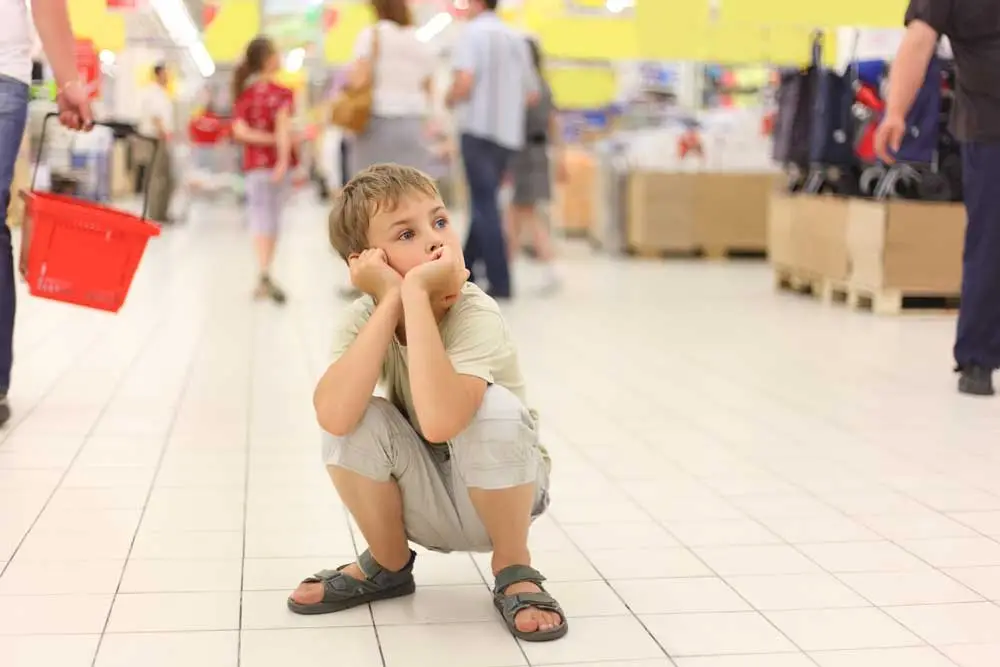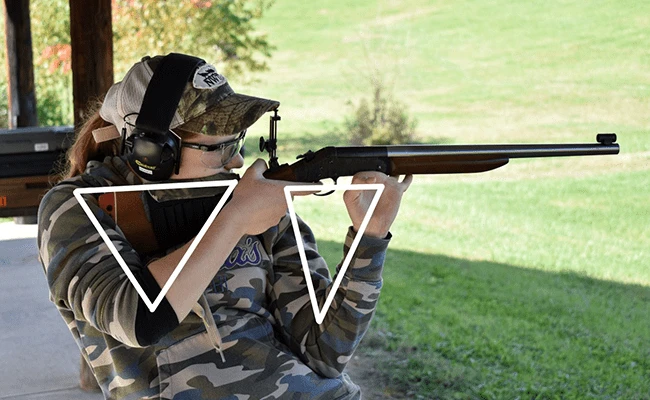If you have lost a child or have found a lost child, it’s essential to act quickly and take the appropriate steps to ensure the child’s safety and reunification with their guardian. Here’s what you should do:
- Stay calm.
- Look around for the child.
- Call the police (or emergency services) with a description.
- Stay in the area if you’re the parent.
- Inform security or store personnel if in a public place.
- Ask for help from passersby.
- Try to contact the child’s guardian.
- Stay on the phone with authorities.
- Provide detailed information about the child.
- Use social media to spread the word.
- Check nearby areas.
How to stay calm when a child is lost?

Remaining calm is the foundation for effective action in such a distressing situation.
Panic can cloud your judgment, making it harder to think clearly and take appropriate steps.
Take a deep breath and remind yourself that you need a clear mind to help the lost child effectively.
Look around for the lost child
Once you notice that a child is missing, start by scanning your immediate surroundings.
It’s possible that the child wandered off nearby and is within sight. In addition, quickly checking the immediate area is a crucial first step before taking further action.
Call the police or emergency services
If you cannot locate the child within a few minutes of searching, immediately call the police or your local emergency number (e.g., 911 in the United States).
Provide the operator with precise and detailed information about the lost child. Key details include:
- The child’s name
- Age
- Height and weight
- Hair color
- What the child was last seen wearing
- Any distinctive features (birthmarks, tattoos, etc.)
- Any medical conditions the child might have
The authorities are equipped to handle missing child cases and will mobilize resources to assist in the search.
In addition, be prepared to follow the operator’s instructions, which may include staying on the line, providing updates, and following any specific procedures they recommend.
What should parents do while waiting for a lost child?
Staying in the area and coordinating with the authorities is essential for a swift and safe resolution in the event of a lost child.
If you’re the parent or guardian
If you are the parent or legal guardian of the lost child, it’s essential to stay in the area where the child was last seen.
This is important because children often return to the last place they remember or expect to find their guardian.
Your presence at this location can facilitate the child’s return or make it easier for them to locate you.
Awaiting the child’s return
While staying in the area, remain vigilant and keep your eyes on your surroundings.
Children might come back on their own or be found by a helpful passerby who can guide them back to you.
Stay composed and approach anyone who may have seen the child or offer assistance.
Coordinating with authorities
Continue to communicate with the police or emergency services. They will likely send officers to your location and may provide additional guidance.
Share any new information or developments with the authorities, such as sightings or potential leads.
Follow the instructions given by law enforcement, as they have the experience and resources to handle these situations effectively.
If you have photographs of the child, provide them to the authorities to aid in their search efforts.
Be ready to provide any necessary documentation to confirm your relationship with the child if required.
How can social media help find a lost child?
If you’re in a public place, such as a shopping mall, amusement park, or any facility with security personnel, it’s essential to notify them immediately.
Security personnel are trained to handle situations like lost children and can assist in several ways:
- They can use security cameras to check for the child’s recent whereabouts.
- They can make announcements over the facility’s public address system to alert other visitors and staff.
- They can coordinate with local law enforcement or call for additional assistance.
- Provide a detailed description of the child, their last known location, and any relevant information to aid in the search.
Asking for help from passersby
In a crowded or public area, seek help from people around you. Many individuals will be willing to assist in locating a lost child.
Approach nearby individuals and calmly explain the situation, asking if they’ve seen the child or if they can help in any way.
Encourage them to spread the word to others, extending the network of people actively looking for the child. Provide a description of the child and the clothing they were last seen wearing.
Using social media and local communities
In the age of technology and social networking, social media can be a powerful tool to quickly spread the word about a lost child.
However, if you have a recent photograph of the child, consider sharing it on your social media accounts and in local community groups or pages.
Encourage others to share the information, increasing the chances of someone recognizing the child and providing valuable information.
Local communities often have dedicated platforms or groups for emergencies and lost persons. These can be valuable resources for mobilizing support and sharing critical information.
How to approach a lost child if you’re not their guardian?
If you find a lost child and are not the child’s parent or guardian, it’s crucial to handle the situation with care and responsibility.
Ensure the child’s immediate safety by staying with them in a safe, visible location.
Approach the child gently, introducing yourself and asking for their name. Reassure them that you’re there to help.
Try to obtain any information the child can provide, such as the name of their parent or guardian, a phone number, or any other relevant details.
If you can reach someone the child knows, inform them about the situation and your location. They may be able to guide you on what to do next.
Attempting to locate the child’s family
If you are unable to reach a parent or guardian or if the child cannot provide contact information, consider asking the child about their home or any nearby landmarks they recognize.
Look for any identification on the child, such as a school ID, medical alert bracelet, or contact information in their belongings.
In cases where there is no immediate solution, contact the police or local authorities. They have resources to help identify the child and locate their family.
Keep the child calm and reassured while you await further instructions from the authorities.
How to provide detailed information about a lost child to the police?

Working closely with authorities is a critical part of the process when a child is lost.
Staying on the phone with law enforcement
When you contact the police or emergency services regarding a lost child, it’s crucial to remain on the line with them.
Staying on the phone allows you to provide immediate updates and clarification if the situation changes or if there are new developments.
Furthermore, the operator may need to ask additional questions or provide instructions, and your cooperation is essential for a coordinated response. They can also provide reassurance and support during what can be a stressful time.
Providing detailed information about the lost child
When speaking with law enforcement, be prepared to provide comprehensive details about the lost child.
This includes their full name, age, physical characteristics (height, weight, hair color, etc.), and what the child was wearing at the time they were last seen.
Share any unique features, such as birthmarks or tattoos, as well as any medical conditions or special needs the child may have.
Hand over any photographs you may have, which can be invaluable for search efforts. The more detailed and accurate the information, the better equipped the authorities are to locate the child.
Following the guidance of local authorities
Law enforcement professionals are experienced in handling missing child cases, and it’s essential to follow their guidance and instructions.
They will direct the search efforts, which may include deploying officers to search the area, checking surveillance footage, and mobilizing resources such as search teams or canine units.
Authorities may also have specific protocols for interacting with the media and managing communication about the missing child. Cooperate fully with law enforcement, as their primary goal is the safe and quick return of the child.
FAQ’s
What do police do when they find a lost child?
When the police find a lost child, they typically ensure the child’s immediate safety. They attempt to identify the child and contact their parents or guardians.
What to do if someone doesn’t come home?
If someone doesn’t come home and you’re concerned about their well-being, you should first try to contact them via phone or other means. relevant information to aid in the search.
What to do if your child doesn’t come home?
If your child doesn’t come home and you’re worried, start by trying to reach them. If you cannot establish contact and are genuinely concerned, contact the local authorities or the police to report the situation. They can assist in locating your child.
What to do if you haven’t heard from someone in 24 hours?
If you haven’t heard from someone for 24 hours and have reason to be concerned, try to contact them and reach out to friends or family.
What to do when your child runs away from home in the UK?
If your child runs away from home in the UK, you should immediately contact the local police and report the situation. They can initiate a search and provide guidance on the necessary steps to take, including involving local social services if needed.
Can I call the police if my child refuses to go to school in the UK?
In the UK, if your child is consistently refusing to attend school, it is advisable to contact the school and discuss the issue with the educational authorities.
Final Words
To sum it up, it’s super important to know what to do when a child gets lost. Staying calm and searching nearby, then calling the police or 911 right away, are the first things to do.
However, if you’re the parent, stick around and talk to the cops. Ask for help from security people, or people walking by, and use social media if you can. If you’re not the parent, be careful and let the police handle it.
Furthermore, work with them, stay on the line, and give as many details as you can. By acting fast and following these steps, we can help the lost child get back to their family and be safe.











